News
Bird Flu Virus Might Resist Fever, Study in Mice Finds
Research•5 min read
Perspective
Award-winning investigative photographer Amy Jones discusses her role in bridging the divide between humans and the emotional violence we inflict on farmed animals.
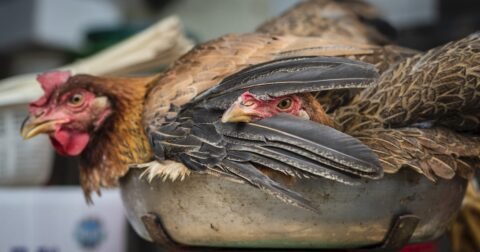

Words by Amy Jones
As a brown-feathered chicken is forced upside-down into a metal chute with her head exposed, chickens in the wired cage next to her bristle their feathers and squawk quietly. At this small-scale slaughterhouse in Hanoi, Vietnam, various birds sit, caged and waiting in full view of the killing floor, where the work has just begun. A worker takes a sharp knife, punctures the neck of the chicken in the chute, and holds her beak while the blood drains out. Beside her, another chicken watches closely. I take my camera and begin to document the scene, painfully aware that these animals are witnessing the deaths of their companions. This is in no way an isolated incident, and each time I’ve documented an animal witnessing the death of another, I wonder, do they know what’s coming? Are they aware that they’re next in line? It is this sentiment that I strive to explore in the photo essay “Next in Line.”
My own reflections here are speculative, as there are currently few-to-no reliable studies that address the trauma that animals face when witnessing the death of others on the slaughter line. But what research shows is that farmed animals are sentient and emotionally complex individuals: cows are able to “catch” each other’s feelings of stress, sheep can recognize fear in other sheep, chickens worry about the future, and pigs can take the perspective and feel the emotional state of another.
Warning: some of the images contain graphic content.
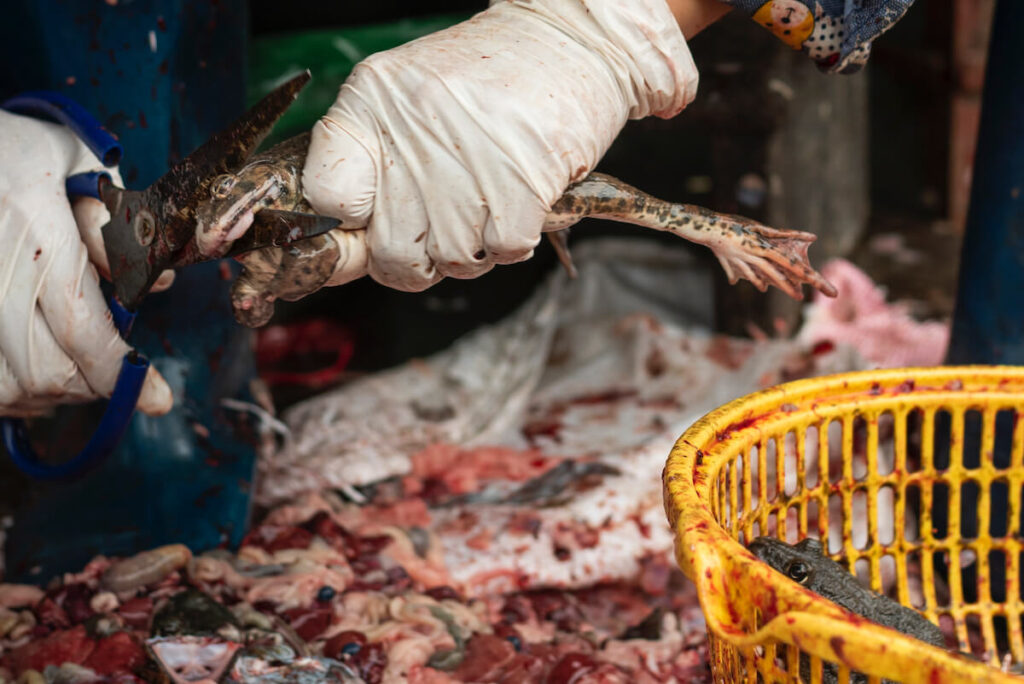
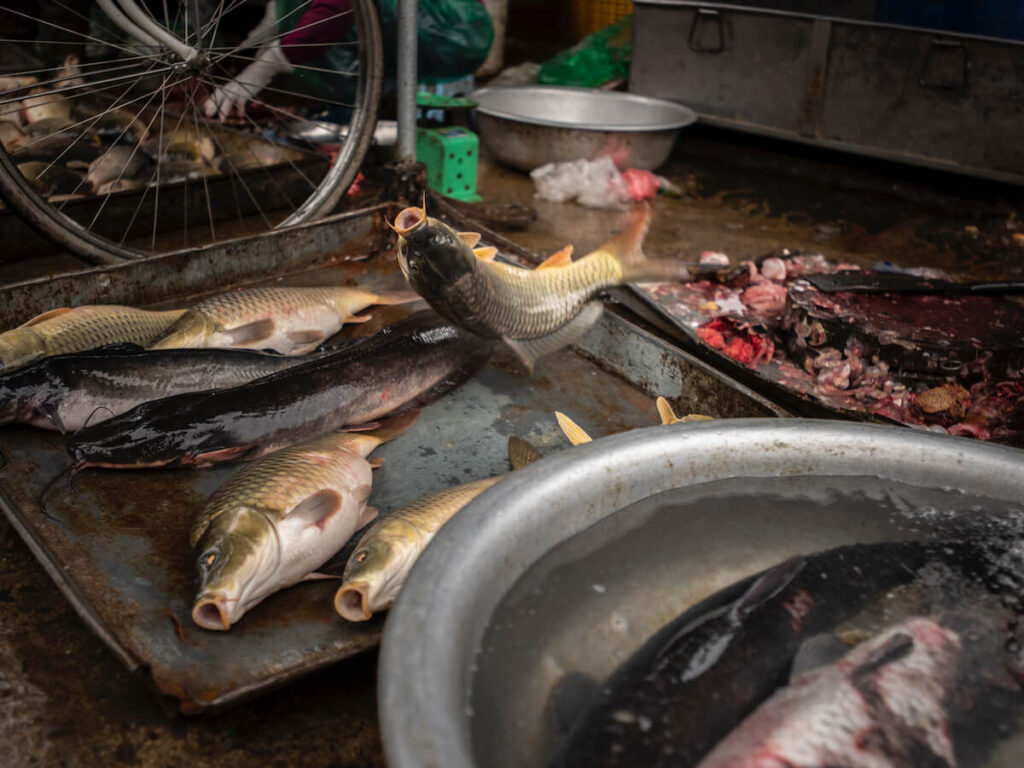
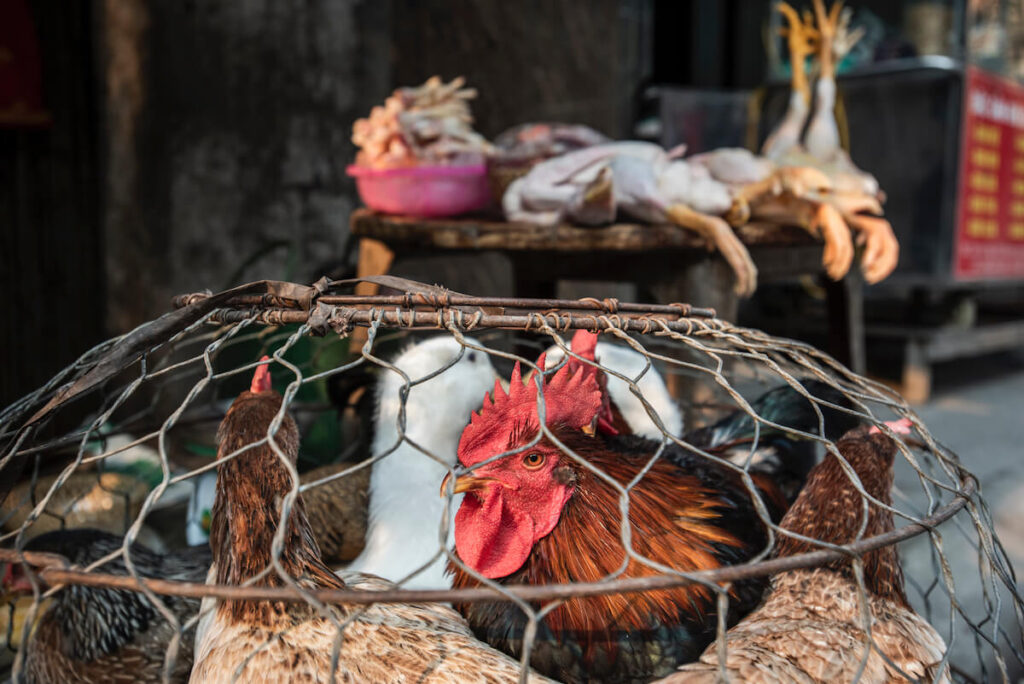
Typically, when farmed animals have been the subjects of such research, it has usually been through the lens of their commodification as a food source. It is only more recently that scientists have begun to further explore the cognition and emotions of farmed animals because for so long, they were seen as just that: ‘farm animals’. Now, this growing research confirms to us beyond doubt that farmed animals are complex individuals, capable of experiencing fear, pain, joy, comfort, and a whole variety of other emotions.
Despite the evidence, we continue to subject these animals to overwhelming levels of emotional and physical trauma. The majority of land animals farmed for food (indeed, 99 percent of farmed animals in the U.S.) are kept on huge, overcrowded, industrialized farms. Living in dark, filthy sheds without natural sunlight, their natural behaviors (such as foraging, perching, nesting, etc.) are severely restricted or denied entirely.
A Faunalytics report exploring slaughter from a philosophical standpoint states that it is currently unclear whether animals possess a concept of death and are able to fear it, but that “until we know more about animals, it might be premature to accept that they lack this understanding.” And that is a key issue: we don’t know what farmed animals can perceive not because they don’t perceive, but because we’re still learning. You simply have to spend an hour at an animal sanctuary watching a pig snuggle up with their favorite soft toy, a chicken purring quietly as they enjoy a petting session, or a cow standing close to their best friend to know that we’ve barely scratched the surface.
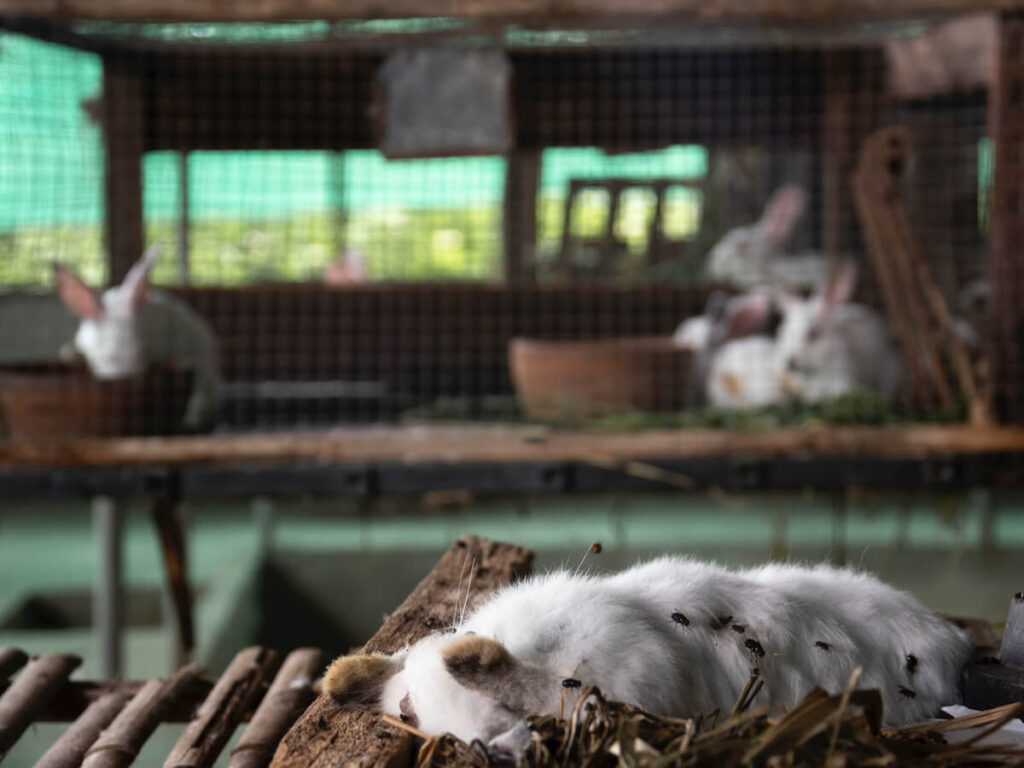
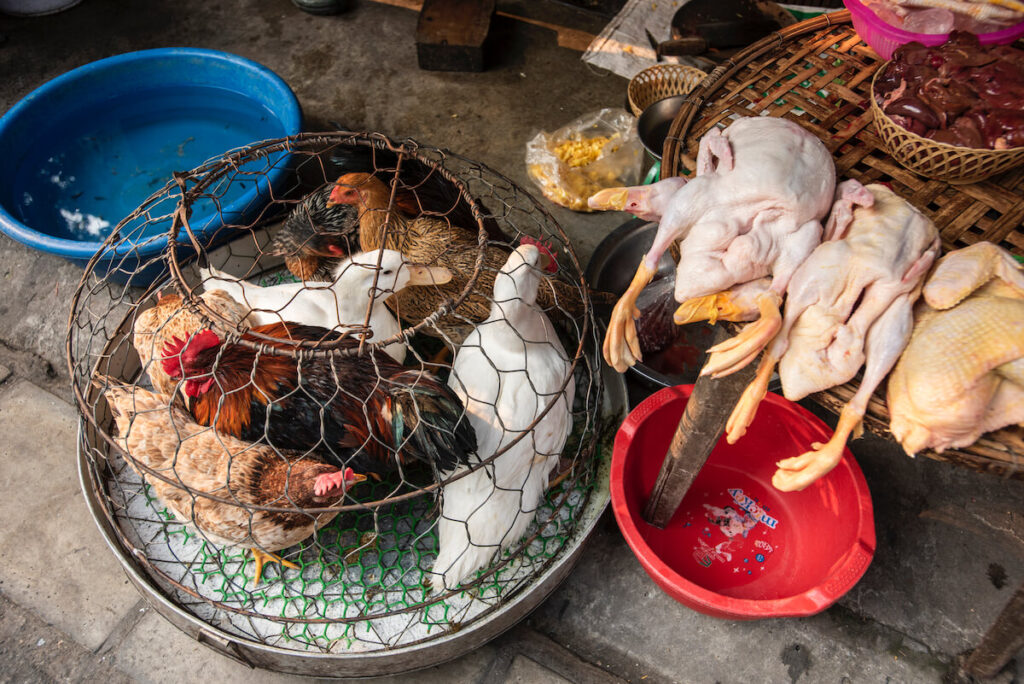
Photographers and creators are working to show animals through a different lens, one which allows them to be seen as the individuals that they are. Vegan artist Isa Leshko explores this in her photography book Allowed to Grow Old: Portraits of Elderly Animals from Farm Sanctuaries. It’s a rare, precious piece of work (most farmed animals are killed at just a few months old). For a moment Leshko’s photographs show us something that we’ve likely never seen before—the elderly decline of farmed animals who are spending their final days in thick beds of clean hay, sunlight warming their backs. That these photos are so surprising shows just how little we know about the lives of farmed animals: we deny them even the chance to age, and essentially even the chance to live.
And when it comes to aquatic animals, our knowledge is even more sparse. There are nearly a quarter of a million species (that we know of) in the ocean, and we can’t even begin to imagine how complex these animals are. All we see them as are lumps of food on our plates. Powerful storytelling is attempting to change that thinking. Last year’s critically-acclaimed Netflix documentary My Octopus Teacher gave mainstream audiences a glimpse into the fascinating lives and sentience of octopuses. What the likes of Allowed To Grow Old and My Octopus Teacher help us to consider is what the potential lives of animals might look like when they are not part of the food system, and how complex they are as individuals, rather than what they are reduced to through the lens of animal agriculture.
I hope that my photographs can be part of that wider learning process, which is encouraging conversations and reevaluating what animals are feeling and fearing. Animals are like us in all the ways that matter, and for just a moment when people look at the photo essay, “Next in Line,” I hope the viewer can pause, question, and consider the emotional violence we inflict on farmed animals and the complex natures of animals that for too long we have seen as nothing more than commodities.
The photo essay “Next in Line” was awarded both Best Overall and Winner of the Animal Welfare category in the International Vegan Film Festival photo essay competition, 2020.